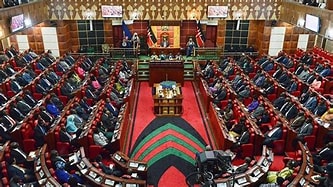Members of Parliament introduced legislation on Friday, March 10, to limit the government’s capacity for borrowing from both domestic and international markets.
Parliament’s Select Committee on Public Debt and Privatization warned that unchecked borrowing would distort economic stakes.
The Committee recommended that the government incorporate the 2023 Medium Term Debt Management Strategy (MTDS) into their borrowing framework.
“In accordance with the fiscal consolidation path, the committee approves and sets a medium-term fiscal deficit target of no more than 4.4 percent of GDP for FY 2023/24, 3.9 percent of GDP for FY 2024/25, and 3.6 percent of GDP for FY 2025/26,” said the Committee report.
The government planned to borrow money over the next three years and use some of the proceeds to repay its debts, according to the 2023Medium Term Debt Management Strategy (MTDS).
Select Committee on Public Debt and Privatization of Parliament noted that Treasury should, as a matter of urgency, implement the proposed policies so as to ensure that national debt does not exceed Parliament’s approved debt ceiling of Ksh10 trillion.
The Committee Chairman Balambala MP Abdi Shurie explained that sustainable debt management is crucial in avoiding overlaps that may place the economy into a sinkhole.
“Furthermore, the committee recommended that National Treasury submits a strategy for resolving non-performing loans associated with various State Owned Enterprises (SOEs), including Kenya Airways, within two months, and that the Office of the Auditor General expedite audits of project loans in the water sector and a Ksh9.9 billion loan borrowed on behalf of KPLC and submit a report to the House within the next two months,” the report read in parts.
In particular, the MPs want Treasury Cabinet Secretary Professor Njuguna Ndung’u to comply with Article 201 of the constitution which regulates local and foreign lending engagements.
The Select Committee also recommended that the government conducts public participation before considering major borrowings.
